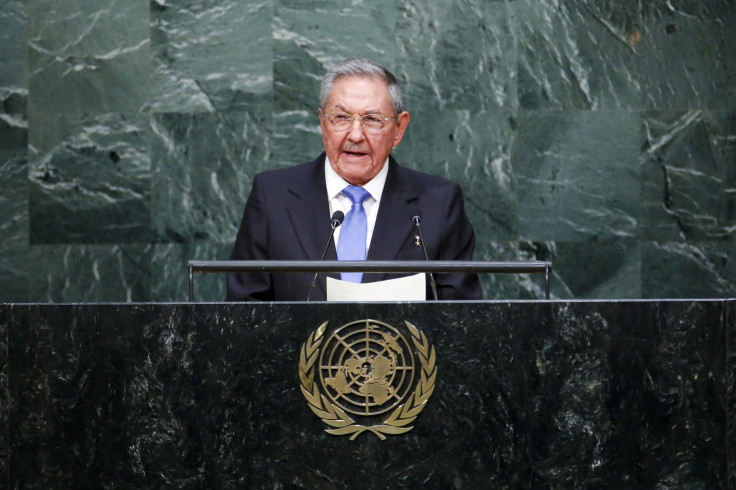
Cuban President Raúl Castro addressed the United Nations General Assembly on Monday, acknowledging his island nation’s recent detente with the U.S. Castro still criticised the U.S. directly and indirectly during his speech. The Cuban leader, who took over from his brother Fidel Castro in 2008, demanded additional concessions from the U.S. He also took shots indirectly at America and other global powers over issues such as climate change and ongoing conflicts in the Middle East.
Castro’s words will be debated and scrutinized over the coming days. Here are 10 important moments from his speech.
Puerto Rico independence: Castro called for the U.S. territory to become it’s own country “after a century of colonial domination.”
Black Lives Matter: Castro called for renewed efforts to combat discrimination, especially of citizens of Western hemisphere residents with African heritage.
Warming U.S. relationship: “Now begins a long a complicated process of normalization of the relations with the United states of America,” Castro said. He acknowledged progress with the island nation’s primary political adversary, but also demanded additional changes and steps.
Trade embargo: Castro demanded an end to the U.S. trade embargo of Cuba, which has hurt the nations economy and isolateded it culturally for over 50 years. Obama had speculated ahead of Castro’s speech that that the U.S. Congress will eventually vote to end the embargo.
Political propaganda: Castro called for the cessation of U.S.-backed propaganda programs on the island. The programs include State Department-funded training and material support for anti-government dissidents. Many of those groups who seek to replace Cuba’s communist regime with a democratic political system.
Monetary compensation: Castro also called for monetary compensation from the U.S. for unspecified aggressions in the past. The U.S. has asked for monetary compensation from Cuba to compensate owners of industries and properties that were seized from their American owners during the Cuban revolution.
Guantanamo Bay: Castro demanded the removal of U.S. troops from Guantanamo bay, an area occupied by U.S. Marines that holds suspected terrorists. The land was obtained during a treaty following a U.S. invasion of Cuba in 1903.
Venezuela, Palestine: Castro reiterated support for Venezuela and Ecuador's “progressive” governments, and supported Argentina’s claim over the Falkland islands as well as Palestine’s bid for an independent state along 1967 borders with “a capital in East Jerusalem.”
Climate Change: “Climate change is threatening the very existence of humanity,” Castro said. He joined with other underdeveloped countries in calling for the largest carbon-emitting nations to bear the burden of emissions reduction. Not all countries were equally responsible for high emissions, he said, arguing that green-house gasses were in part due to “consumerism.”
Dangers of the internet: Castro said that the internet was a vehicle for cyber warfare to help overthrow governments. Without naming the U.S. directly, he alleged that certain countries used the internet to try to overthrow legitimate governments using a “playbook” that included “allegations of supposed human rights violations.” Cuba is probably safe for now; it has some of the poorest internet access in the world.
© 2025 Latin Times. All rights reserved. Do not reproduce without permission.




